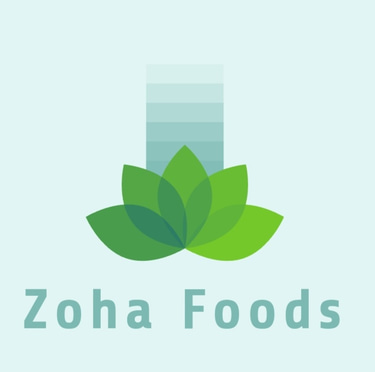The Cost of Sweetness: Why Organic Honey is More Expensive
Organic Honey is more expensive because the factors contributing to this increased price include organic farming practices, meticulous bee management, and the labor-intensive processes involved in harvesting and processing.
HONEY
Zia Khan
9/24/20257 min read


What is Organic Honey?
Organic honey is a natural product derived from the nectar of flowers collected by bees, adhering to strict agricultural and environmental standards throughout its production process. To be classified as organic, honey must meet specific criteria set forth by certifying bodies. These standards ensure that the honey is free from synthetic chemicals, pesticides, and genetically modified organisms (GMOs), reflecting a commitment to both environmental sustainability and consumer health.
One of the primary requirements for organic honey production is the beekeeping practices employed. Beekeepers must maintain hives in locations where bees can access organic flowers exclusively, avoiding exposure to non-organic pollutants. This geographic isolation is crucial as it dictates the purity of the nectar collected. Furthermore, organic beekeepers are obligated to provide natural, organic diets for their bees and manage their colonies using natural methods. This may include the use of essential oils or organic acids instead of conventional antibiotics or synthetic treatments to maintain hive health.
The flowers from which bees gather nectar must also be organic, cultivated without chemical fertilizers or pesticides. This means that bees primarily pollinate wildflowers and crops grown in organic farming systems, yielding honey with a distinct flavor profile and higher nutritional value. Additionally, the extraction and packaging processes for organic honey must align with organic standards. This includes using clean, uncontaminated equipment and avoiding additives or preservatives that might compromise the honey's integrity.
As a result of these rigorous processes, organic honey not only offers a superior taste but also promotes ecological sustainability, making it a valuable choice for health-conscious consumers. These distinctive characteristics set organic honey apart from conventional varieties, justifying its higher price point in the market.
Beekeeping Practices: The Organic Way
Producing organic honey entails a commitment to specific beekeeping practices that prioritize the health of both bees and the environment. Unlike conventional beekeeping, organic honey production prohibits the use of synthetic pesticides and herbicides in the vicinity of hives. This requirement not only protects the bees from harmful chemicals but also ensures that the honey remains pure and free from contaminants. Organic beekeepers often depend on natural methods for pest control and hive management, which can be more labor-intensive and time-consuming than conventional techniques. As a result, the cost of producing organic honey rises.
Another vital aspect of organic beekeeping is the emphasis on biodiversity. Organic honey producers strive to maintain a rich and varied forage for their bees, which includes a mix of native wildflowers, plants, and crops that are not treated with chemicals. This diverse diet not only supports bee health and productivity but also contributes to the complex flavor profiles found in organic honey. By cultivating a diverse and chemical-free environment, organic beekeepers invest in long-term sustainability, even if it increases initial production costs.
Moreover, the humane treatment of bees is a cornerstone of organic beekeeping practices. Organic honey producers prioritize the well-being of their bee colonies, implementing measures that minimize stress and promote natural behaviors. Beekeepers take care to avoid practices that may harm the bees or compromise their health, such as excessive hive manipulation or using the queen culling method. This compassionate approach requires more resources and time, further adding to the cost structure of organic honey production. While the price of organic honey may reflect these conscientious practices, it also signifies a commitment to environmental stewardship and bee welfare.
Quality Over Quantity: The Production Process
The production process for organic honey is notably distinct from that of conventional honey, emphasizing quality over quantity at every stage. Organic honey is derived from bees that forage exclusively on organically grown flowers, ensuring that the nectar is free from synthetic pesticides and fertilizers. This specific forage requirement mandates stricter agricultural practices, which inherently reduces the yield of honey produced. As a result, the production of organic honey is much smaller-scale compared to its conventional counterparts.
During the beekeeping process, organic standards stipulate that beekeepers must maintain the health and welfare of their bees without the use of antibiotics or synthetic treatments. Instead, they rely on natural methods for disease control and colony management. This holistic approach results in healthier bee populations but often translates to a slower production cycle. With fewer colonies and limitations on the management techniques used, the volume of honey harvested is considerably lesser than that from conventional methods.
After harvesting, organic honey undergoes minimal processing. It is typically cold-extracted, which means the honey is not heated beyond natural temperatures. This preserves its natural enzymes, flavors, and nutritional benefits but gives it a shorter shelf life compared to processed honey. Furthermore, the stringent certification requirements for organic products ensure that every jar of organic honey meets high safety and quality standards, adding to the overall costs.
In essence, the combination of lower yields, extensive labor practices, and certification processes all contribute to the higher prices associated with organic honey. Consumers seeking the authentic taste and health benefits are often willing to pay this premium, recognizing the intricate balance between sustaining bee populations and producing high-quality honey.
Certification and Regulation Costs
The production of organic honey is a complex process that is subject to rigorous standards set by various certification bodies. Honey producers aspiring to obtain organic certification must navigate a maze of regulations, which introduces several financial burdens. The key expenses associated with this endeavor include application fees, inspection costs, and ongoing compliance assessments, all of which are necessary to maintain organic status.
Initially, producers must pay an application fee to become recognized as organic. This fee covers the administrative costs of evaluating the producer's operation. Subsequently, producers face substantial expenses related to inspections conducted by qualified organic inspectors. These inspections assess whether the honey production process adheres to organic standards, including the management of hives, treatment of bees, and sourcing of nectar. Inspections can be time-consuming and costly, as producers are responsible for compensating inspectors for their time and expertise.
Moreover, ongoing compliance is not a one-time affair; it requires regular inspections to ensure continued adherence to organic standards. This translates into recurrent fees that can accumulate significantly over time, imposing a considerable financial burden on smaller producers. Additionally, honey producers must invest in organic practices, which may include using natural pest control measures and sourcing organic feed for their bees, further adding to the overall costs.
Ultimately, these certification and regulatory expenses are factored into the price of organic honey. As producers strive to meet stringent standards while maintaining their operations, the increased costs are often passed on to consumers. This results in organic honey being sold at a premium, reflecting not only its quality but also the significant investments made by producers to comply with organic regulations.
Market Demand and Consumer Awareness
The increasing market demand for organic honey can be largely attributed to a heightened consumer awareness regarding health and wellness. As individuals continue to seek out more natural and less processed food options, organic honey has emerged as a preferred choice for many. Consumers are increasingly educated about the benefits of organic products, ranging from their impact on health to their environmental benefits. This awareness has significantly influenced purchasing behavior, leading to a willingness to pay higher prices for organic honey compared to conventional alternatives.
As people become more health-conscious, they are drawn to products labeled as organic, which are often perceived to be free from harmful pesticides and additives. This perception is especially pronounced in honey consumption, where the belief that organic honey is purer and more nutritious contrasts sharply with conventional honey, which may undergo multiple processing stages. The transparency in labeling associated with organic products enhances consumer trust and fosters a preference for these offerings, further propelling market demand.
Ethical considerations play a crucial role in this shifting preference. Many consumers are interested in supporting sustainable agricultural practices and ethical beekeeping, which aligns closely with the principles behind organic honey production. By choosing organic options, consumers feel they contribute to an eco-friendlier model of food production that promotes the welfare of bees and biodiversity. This growing ethical consumerism is not just a trend; it reflects a deepening commitment to making informed choices about the food people eat. As a result, the market for organic honey continues to flourish, with consumers willingly investing in products that align with their values.
Environmental Impact Considerations
The production of organic honey is deeply intertwined with environmental considerations that extend beyond merely providing a sweetener for consumption. Organic honey production fosters biodiversity, an essential component of a well-balanced ecosystem. Bees are critical pollinators, and their foraging efforts significantly enhance the reproductive success of numerous plants, which in turn supports a diverse range of wildlife. By choosing organic honey, consumers are supporting beekeeping practices that prioritize the health and well-being of bee populations, ultimately contributing to robust ecosystems.
One of the primary reasons organic honey is more expensive is the sustainable practices involved in its production. Organic beekeepers employ methods that are less intrusive and more respectful of the natural habitat in which bees thrive. They refrain from using synthetic pesticides and antibiotics, which can harm bee colonies and contaminate local flora. This commitment to environmentally friendly practices not only benefits the bees but also promotes the ecological balance essential for pollination. As such, organic honey can be seen as an investment in the preservation of natural resources, which resonates with consumers' growing awareness of environmental issues.
Moreover, organic farming methods are designed to nurture soil health and enhance ecosystem resilience. By avoiding harmful chemicals, organic beekeepers contribute to the restoration of habitats that support various plant and animal species. The ecological benefits of organic honey production extend to consumers who are increasingly inclined to support products that align with their values around sustainability. This growing consumer preference underscores the notion that higher prices can be justified by the commitment to environmental preservation and ethical production practices. Consequently, investing in organic honey becomes not only a culinary choice but also a vote for continued ecological health and sustainability.
Final Thoughts: Is Organic Honey Worth the Price?
Organic honey, often heralded for its purity and natural production methods, comes at a higher cost compared to conventional honey. The factors contributing to this increased price include organic farming practices, meticulous bee management, and the labor-intensive processes involved in harvesting and processing. Organic beekeepers adhere to stringent guidelines aimed at maintaining the health of bee populations while avoiding chemicals that may compromise honey's organic status. This dedication to sustainable and environmentally-friendly methods ultimately influences the market price.
Furthermore, the nutritional and health benefits associated with organic honey enhance its value proposition. Many consumers believe that organic honey possesses higher antioxidant levels and better flavor profiles than its non-organic counterparts. These perceptions are often substantiated by studies demonstrating that organic options may contain fewer residues from pesticides and other chemicals, appealing to health-conscious individuals. In addition, the numerous uses of organic honey, ranging from culinary applications to natural remedies, further justify the premium price tag.
Despite the higher cost, many consumers argue that the investment in organic honey is worthwhile, given its potential health benefits and environmental impact. The choice often depends on personal values, budget constraints, and the importance placed on sourcing sustainable products. For those committed to organic lifestyles, supporting organic beekeeping can be seen as a way to promote ethical practices within the agricultural sector.
Ultimately, the decision of whether to purchase organic honey hinges on weighing these various factors against one’s financial situation and lifestyle choices. By understanding the reasons behind the price differential, consumers can make informed decisions that align with their values, potentially justifying the extra expense of choosing organic honey.
